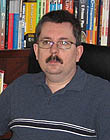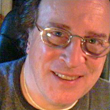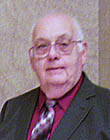|
|
This topic comprises 2 pages: 1 2
|
|
Author
|
Topic: Old live radio performance technology
|
|
|
|
|
|
|
|
|
|
|
|
|
Leo Enticknap
Film God

Posts: 7474
From: Loma Linda, CA
Registered: Jul 2000
|
 posted 11-06-2017 10:43 AM
posted 11-06-2017 10:43 AM





An often told story in British broadcasting folklore is that when the Crystal Palace in South London burned down in 1936, a very young Richard Dimbleby was sent by the BBC to report on it. A recording crew was not available, so he went to a public call box close by, engineers back at the studio jerry rigged a way of patching the connection at the other end straight to air, and his commentary on the fire thus became the UK's first live outside broadcast. Sadly, they could not figure out a way of duplicating the feed to a disc cutter (at least, not until after the subject of the broadcast had been reduced to a pile of ashes), and so no recording was made.
On the subject of weird and wacky stillborn technologies, about a decade ago I was given a demonstration of a privately owned and restored Philips-Miller recorder. It literally engraved an optical audio trace out of black film emulsion, which was then played back using a conventional photocell, of the sort used in cinema projectors.
The owner had hooked it to a modern Cambridge Audio consumer integrated amplifier and budget hi-fi speakers (can't remember which model) - something with much more range than the tube amps and speakers in use at the time. The audio was astonishing: subjectively speaking, just as good as a late '50s mono LP, and probably more detailed in the high end. Apparently the BBC used them experimentally, along with the Blattnerphone, in the 1930s, but went back to using disc recording until EMI got their hands on captured Nazi magnetic recording technology in the late '40s (Ampex in the US did at around the same time), and launched the BTR series of tape recorders.
| IP: Logged
|
|
|
|
|
|
Frank Cox
Film God

Posts: 2234
From: Melville Saskatchewan Canada
Registered: Apr 2011
|
 posted 11-06-2017 01:46 PM
posted 11-06-2017 01:46 PM





The ubiquity and instant availability of recorded music today certainly creates a different sort of musical culture than what existed some years ago, before recordings were commonly available.
As stated above, the book that I was reading is a contemporary novel written in 1935. At one point the characters attend a posh "penthouse party" where the guests are dancing foxtrots and waltzes to music that's playing on the radio.
As you can see, I found the musical aspects of the story very striking, though the novel is actually an early tough-guy noir, i.e "booze, babes and bullets".
Some of the story takes place in and around Chicago nightclubs. At that time a live band was apparently the best option for music in your establishment, and a few years before that it would have been the only option. And if you wanted to have music in your home you would have had to play it yourself.
I have read that sheet music sales in the late nineteenth and early twentieth century were driven by sales of cheap pianos, and sheet music was more-or-less the equivalent of the 45 rpm singles that were being sold when I was a teenager, i.e this is what you bought when you wanted to obtain music.
In short, printed sheet music was a huge industry at one time, which was replaced by sales of recorded singles and LP records, followed by about twenty years of CD's, replaced by digital music sales (and mp3 piracy) and today the music scene seems be largely driven by streaming audio channels and subscription sales to the same.
I'm sure that the changeover from live to recorded music in commercial establishments had a big effect on the labour market for musicians, as well. A mediocre musician who could have made a living out of being in a backing band or an average torch signer would suddenly find him or herself out of work.
There's probably a dissertation in there for a musical history student. ![[Smile]](smile.gif)
| IP: Logged
|
|
|
|
Leo Enticknap
Film God

Posts: 7474
From: Loma Linda, CA
Registered: Jul 2000
|
 posted 11-06-2017 04:53 PM
posted 11-06-2017 04:53 PM





quote: Frank Cox
I have read that sheet music sales in the late nineteenth and early twentieth century were driven by sales of cheap pianos, and sheet music was more-or-less the equivalent of the 45 rpm singles that were being sold when I was a teenager, i.e this is what you bought when you wanted to obtain music.
Correct, and you can also add the player piano into that mix. However, actually playing the piano was a far more widely taught skill before the advent of recorded and broadcast music than it is now, and how playable a given song or piece was for someone who only played the piano as a hobby (not for a living), was a major determinant in how commercially successful it was.
If you read biographies of Scott Joplin, an interesting (to me, at any rate) aspect of his career is the constant battles he had with his publisher, because a lot of his rags were difficult enough that only a professional musician could really play them. One of the reasons The Entertainer became such a huge hit was because an amateur pianist of average ability can easily handle it (by the same token, some Beethoven sonatas, e.g. #7, can be played by someone like me, because they were commissioned for average ability amateur pianists. But the Hammerklavier? Nah, haven't got a spare lifetime to practice that one!). But a lot of his other stuff (The Cascades and The Country Club come to mind) simply isn't.
I'm not sure that stride jazz would ever have become popular if it hadn't coincided with recorded sound growing into a widespread consumer technology. Listen to pianists like James P. Johnson and Fats Waller, and what you're hearing is virtuoso enough that no way in hell could even most professional pianists do that, let alone an amateur. Before recording and broadcasting, music had to be playable and singable by people who, afterwards, just listened to it.
quote: Kenneth Wuepper
Reginald Webb, a theatre organ teacher...
Was being called Reginald an unofficial job requirement of being a movie theater organist in the 1930s? Reginald Dixon was arguably Britain's best known, and one of very few to become a broadcasting star.
| IP: Logged
|
|
|
|
Frank Angel
Film God

Posts: 5305
From: Brooklyn NY USA
Registered: Dec 1999
|
 posted 11-06-2017 07:32 PM
posted 11-06-2017 07:32 PM





For awhile in the early 70s, a station here in NYC, WMGM (yes, at one time, the studio also owned a radio station in a top 40 market in NYC) produced a weekly, live broadcast show that mimicked the live drama shows of the late 40s and early 50s -- actors reading scripts accompanied by mood music and sound effects. The were great entertainment -- now we have the same kind of thing with audio books.
I remember listen to some of these and from my recollection, they had very high production values, I assume, in part, because they had a wealth of talent to call upon as well as scripts that maybe didn't make it to the screen but could be re-purposed for the radio and unlike the earlier radio dramas and soap operas that used an organ as the music source (why organ and not a piano or a small ensemble?), they also had stock music as well as the ability to pre-record sound effects probably the parent studio's foley know-how came in pretty handy.
We first produced a live radio program, "Brooklyn Center Presents" that at first was sent to the studio on two copper-to-copper lines (or "dry circuits") that were nothing more than cables that went from point to point thru the telephone company switching stations but bi-passed all electronics and switches. They basically were giving us a run of audio cable from the source output (our mixer) to the terminal point (the station's input). Both sides had the big eq boxes -- probably the ones Harold mentioned -- that work something close to magic, at least in my mind, given the distance from us to the studio (Brooklyn to Manhattan); I expected the end result was going to mangled by dirty ground noise, hum, hi freq degradation and stereo crosstalk. But we did three live broadcasts this way, then finally just went recording everything and shipping the programs on R2R 1/4in tape -- much more control, but not as much of the exhilaration of doing it live.
| IP: Logged
|
|
|
|
|
|
All times are Central (GMT -6:00)
|
This topic comprises 2 pages: 1 2
|
Powered by Infopop Corporation
UBB.classicTM
6.3.1.2
The Film-Tech Forums are designed for various members related to the cinema industry to express their opinions, viewpoints and testimonials on various products, services and events based upon speculation, personal knowledge and factual information through use, therefore all views represented here allow no liability upon the publishers of this web site and the owners of said views assume no liability for any ill will resulting from these postings. The posts made here are for educational as well as entertainment purposes and as such anyone viewing this portion of the website must accept these views as statements of the author of that opinion
and agrees to release the authors from any and all liability.
|

 Home
Home
 Products
Products
 Store
Store
 Forum
Forum
 Warehouse
Warehouse
 Contact Us
Contact Us




 Printer-friendly view of this topic
Printer-friendly view of this topic










![[Smile]](smile.gif)




